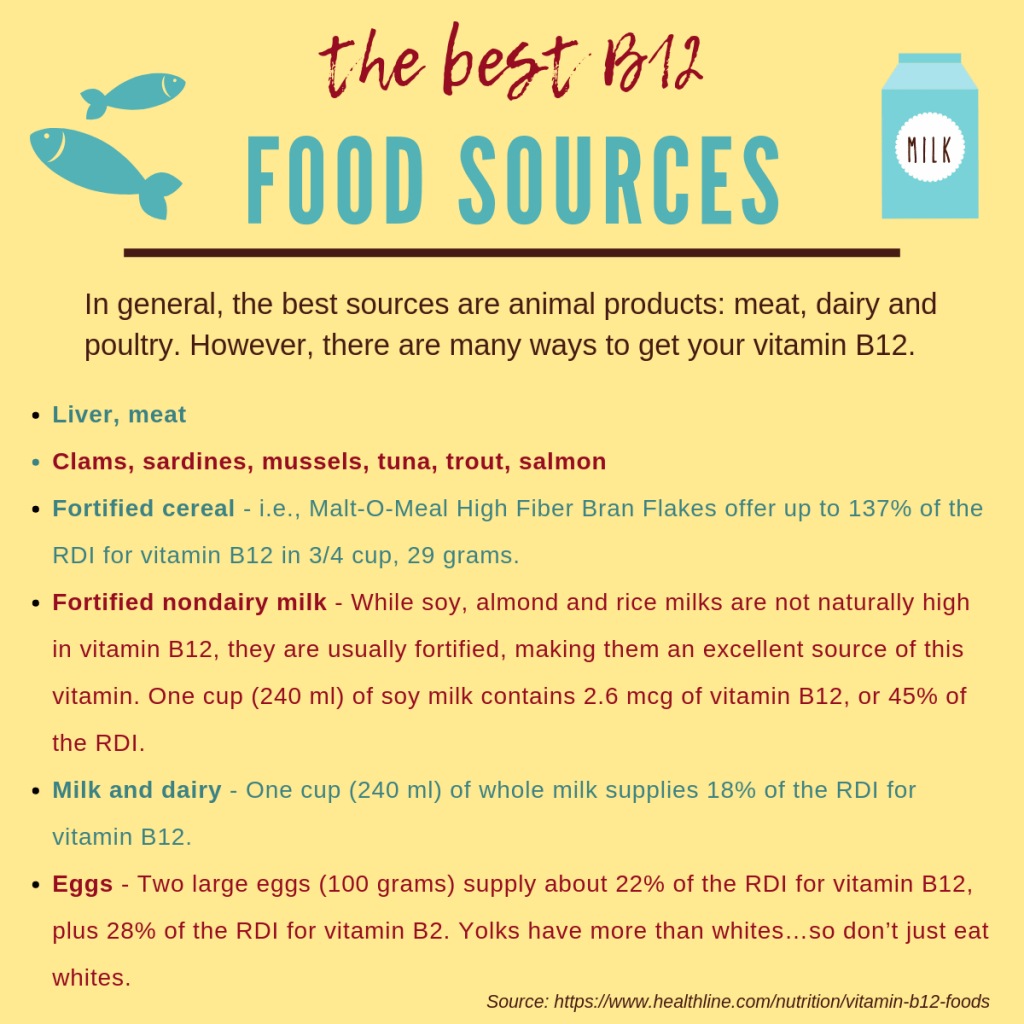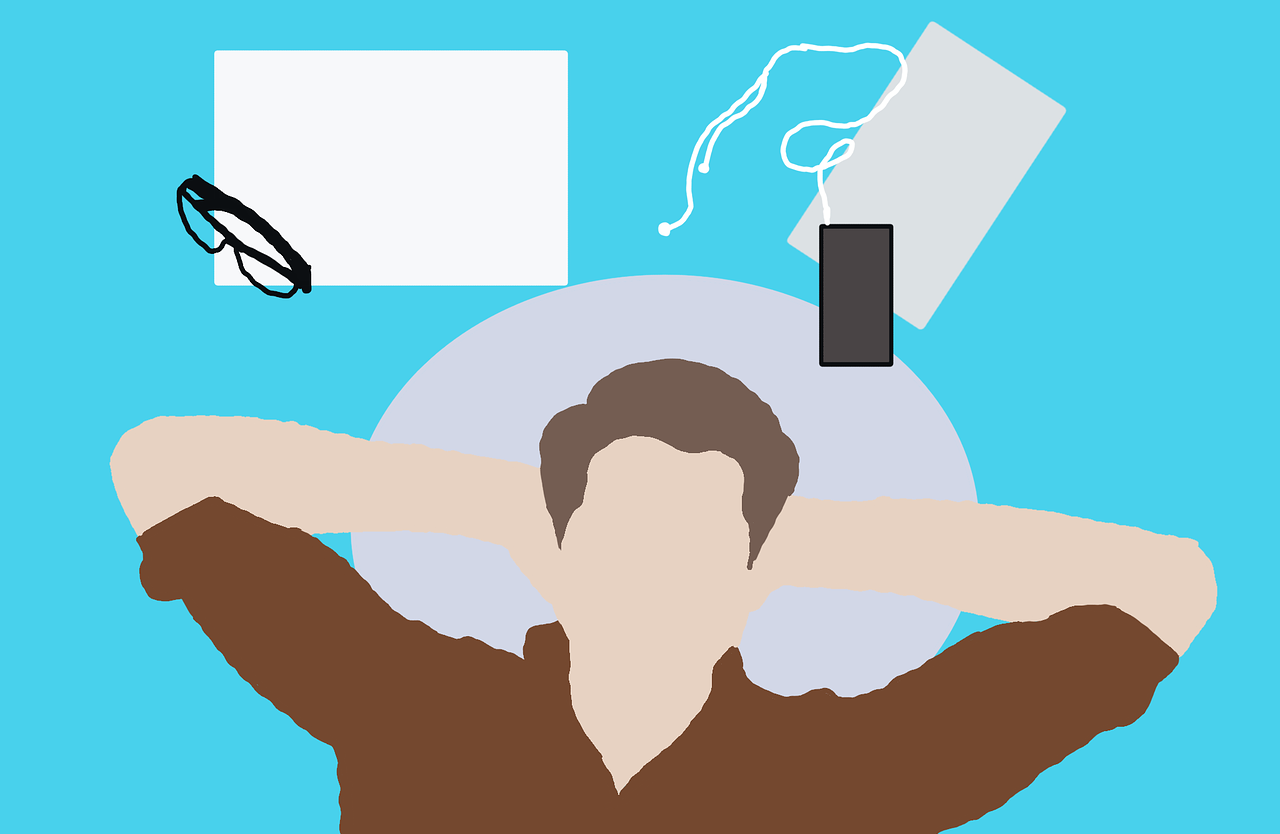
Vitamin B12: Are you deficient?
Would you be surprised to learn that 92% of the U.S. population suffers from a vitamin or mineral deficiency? It sounds crazy, but it’s true. And vitamin B12 is one of the deficiencies most overlooked.
If you are over 50 and reading this, about 20% of you are deficient in vitamin B12 – but it’s not just older adults that are impacted. In general, there is a lack of knowledge of the warning signs of a deficiency and late detection…so folks of all ages may be overlooking a deficiency in this important vitamin.
Why should you care about B12?
For starters, the human body doesn’t make vitamin B12 – so all of us must get this nutrient from our diet. We also can’t store it up, thus we need to consume foods that contain it on a regular basis. Adults need around 2.4 micrograms (mcg) of vitamin B12 each day.
But what does B12 do for us? Plenty!
It is crucial for making DNA and red blood cells and carrying out other functions, such as helping to support the nervous system. And while the optimal situation is to get B12 from our diet, the reality is that many of us don’t eat enough of the correct foods to get the amount of this vitamin we need each day. The chart below shows some of the best food sources for vitamin B12, but if we don’t eat enough of these food categories regularly, a supplement may be needed.
Am I at risk of not having enough vitamin B12?
To know for certain, you should ask your medical provider to run a test to see if you are indeed deficient in B12. In general, there are some individuals at a higher risk for a B12 deficiency.
- Vegetarians, older adults, pregnant or breastfeeding women*
- Individuals who have recently had weight loss stomach surgery
- Sufferers of Crohn’s or celiac disease
- Individuals with pernicious anemia
- Individuals on prescribed heartburn medications, which impact vitamin absorption
- Alcoholics or recovering alcoholics – alcoholism causes damage to the gastrointestinal lining, where the vitamin is absorbed and distributed
*If you fall under one of these categories, consider getting your levels checked for an early diagnosis.
Why vegetarians? Well, since animal proteins are one of the best sources of B12, vegetarians are automatically missing out on a regular source of B12. The reality is that non-meat eaters have to work harder than the general public to get enough food sources of B12 and avoid the need for a supplement.
What are the signs of a possible B12 deficiency?
There are many signs of a possible deficiency, but keep in mind that these signs could also signal other conditions. A check of your B12 levels, once some of these signs appear, is the best way to know if your symptoms are related to this deficiency or some other cause.
Be on the lookout for the following symptoms:
- Tingling hands/feet or “pins and needles” sensation (People who are vitamin B-12 deficient may not produce enough myelin to coat their nerves. Without this coating, nerves can become damaged.)
- Trouble walking due to numbness
- Jaundice (yellowish, pale skin)
- Fatigue or weakness due to not enough red blood cell production
- Fast heart rate and shortness of breath (making up for reduced number of red blood cells
- Mouth ulcers, swollen tongue, burning sensation in the mouth
- Cognitive impairment, perhaps due to reduced oxygen getting to brain
- Irritability
- Nausea, vomiting, diarrhea (not enough oxygen reaching the gut)
- Decreased appetite
How could B12 benefit me?
The benefits are many when your levels are low. If you are not deficient in B12, you may not experience these benefits .
Pregnancy
Taking vitamin B12 during pregnancy has been proven to mitigate birth defects.
Supports healthy skin, hair, nails
Since low vitamin B12 levels can cause various dermatologic symptoms, adding B12 can improve those conditions. Hyperpigmentation, nail discoloration, hair changes, vitiligo (the loss of skin color in patches) and angular stomatitis (inflamed and cracked mouth corners) are all common with B12 deficiencies.
Better sleep/energy
Vitamin B12 assists in melatonin production, a hormone responsible for sleep regulation. It also aids in glucose metabolism, which can boost your energy levels.
Improvement to brain function/mood
One of the vitamins essential in the production of serotonin, the brain chemical responsible for mood regulation, is B12. Supplementing B12 may help in lessening the effects of depression, but I always recommend that you consult with a health practitioner to help you deal with depression symptoms.
Studies show that patients who have lower levels of B12 have an increased risk for brain volume loss, particularly as they age. Adding a B12 supplement can boost the production of neurotransmitters, which help our cognitive functioning and memory.
Aid to digestion
If you struggle with digestion issues, you’ve likely learned about the importance of “gut” bacteria. Vitamin B12 helps the production of necessary digestion enzymes, fostering healthy bacteria production needed to break down foods and support a healthy metabolism.
Other benefits
Many folks boosting their vitamin B12 levels – either through foods or supplements – have experienced other benefits. While there is still a lot of research around these benefits, it’s worth noting that if you are deficient, B12 may:
- Support bone health and prevent osteoporosis
- Assist in maintaining heart health
- Reduce macular degeneration
So what are your best ways to get B12?
First, I always recommend getting your levels checked. If you are deficient, you can always increase your intake of foods high in B12. However, a serious vitamin B12 deficiency can be corrected two ways: weekly shots of B12 or a daily high-dose B12 supplement. A mild deficiency can be corrected with a standard multivitamin.
Final thoughts
If you fall into a high-risk category for a deficiency in vitamin B12 or any other vitamin (vitamin D is another one where folks are often deficient), talk to your health provider and get your levels checked. If you aren’t high risk but you are having some of the deficiency symptoms noted, you should also talk with your health provider. Deficiencies are so common…and often overlooked. A level check is easy – and could be a huge difference maker in your health! Call our office to schedule one and a vitamin consultation with me.



